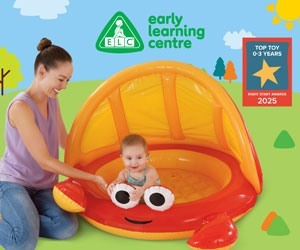Sweet little lies
Published
A stonking 85 per cent of mums and dads admit to telling their little ones lies every
day, with over half of the ‘untruths’ aimed at getting youngsters to eat healthily.

A survey by Mamia, Aldi’s mother and toddler brand, reveals parents tell an average of 10 little white lies to their kids every week to help them power through parenting. And it highlighted some amazingly creative lies that parents use to make life easier, such as: when ice cream goes hard it means it’s out of date!
Parents are most frequently driven to stretching the truth in a quest to get little ones to eat at mealtime (66 per cent), to stop them doing something naughty (40 per cent) or simply to save time (14 per cent).
Common classic lies, used by more than 50 per cent of parents, include: spinach will give you super strength; milk will make you grow taller and carrots will help you see in the dark. But the survey uncovered some less well-known and highly inventive ones too:
* Everyone gets 10,000 words per month – and if you reach the limit, you can't physically speak until the new month begins.
* The alarm sensors in the house light up when Santa is watching.
* If the McDonald’s sign is yellow, it’s closed.
* The dog ate your sweets (it was really me!).
* The green things on your plate are a new type of chocolate.
* It’s a potato van, NOT an ice cream van.
Aldi has partnered with Children’s Nutritionist Sarah Almond-Bushell, who says: ‘Little white lies work! Even as a registered dietitian, I am guilty of stretching the truth when it comes to my children. They grew up thinking that tuna was actually dark chicken – if they had known it was fish there would have been outright rejection.’
Here are Sarah’s tips to help parents reduce the need for those little fibs and get kids eating more healthily…
- Provide healthy meals and snacks at timely intervals throughout the day. Little ones are often so tired at the end of the day that they might skip supper – this is totally normal.
- Young children naturally know what their bodies need – amazingly they can self-regulate their food intake provided we as parents don’t regularly intervene. They may not get their full quota of nutrients in one day, but by the end of the week they tend to level it out.
- Little ones are highly imaginative – we often refer to this stage as ‘magical thinking’. Try cutting food into fun shapes: such as sandwiches into teddy bears and peppers into flowers. Serve food on colourful plates to make it more appealing.
- Serve meals family-style with several individual dishes on the table. This gets toddlers involved and gives them a small amount of control over mealtime, choosing how much food goes on to the plate and into their tummies.
Visit https://www.aldi.co.uk/mamia.







